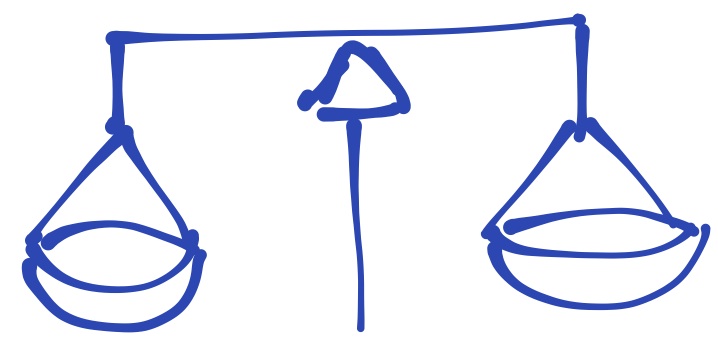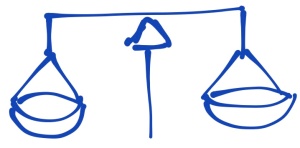I had the privilege of spending last week at the Sloan C and Merlot Emerging Technologies for Online Learning conference (et4online). I wrote a little about it in advance and wanted to take note of some of what I saw, heard, and was provoked and stimulated by while it was still fresh. As predicted in my pre-conference post, my conference was all about open, MOOCs, accessibility, and ePortfolios.
I tweeted throughout much of the conference and my tweets are over on Storify. The wordle has mostly picked up the sessions, but it’s still interesting as one view of my et4online.

et4online Wordle
Keynotes
There were four plenaries /keynotes at the conferences. Steve Wheeler, George Veletsianos, James Byers, and a panel of Ed Tech start-ups.
- Steve Wheeler’s is freely available to view on the Sloan site,
- George Veletsianos’ slides are on Slideshare,
- WikiSpaces (I can’t find a public version as yet)
- Launchpad panel
I enjoyed them all for different reasons but in particular need to admire George Veletsianos for getting us to do group work/ engage in peer learning in a plenary and James Byers for giving us an attention grabbing early morning presentation (7:30…) on how to work with and talk to start ups.
I had a mixed reaction to the panel. It was very well done and kudos to Tony Wan for facilitating. The panel had some moments were the different outlooks and aims shone through. For me I was strongly reminded of my need to go back through the Purpos/ed discussions and continue to think about why we do what we do. I was also struck by the impression that, structurally in the US (cf the UK) a lot of technical innovation seems to have to happen/ only be able to happen outside of institutions and there’s a resultant ‘solutionizing’. There’s been a much bigger discussion of this (for example see Audrey Watters on many things, including her summary of Morosov) that I’m no where near qualified to start into but there’s something culturally different between how I see this playing out here and in Europe that I haven’t figured out yet.
All about MOOCS
If I started going through all the discussion of and presentations about MOOCs I’d be here for longer than you’d care to read. I’ll try to capture some useful fragments. For this context – I’ll set the open/free/commercial discussion aside beyond alluding to Campbell channelling Elliot – ‘”That is not it at all, That is not what I meant, at all” – J. Alfred Prufrock’.
MOOCs, LMSs, and Publishers
Perhaps most importantly there was little distinction between LMS provider and MOOC platform provider. Mike Caulfield said a while back (and restated https://twitter.com/holden/status/322099389864755201 ).

@Holden on MOOC, LMS, and publisher collisions
For example, Udacity’s cancelled workshop was replaced by a similar one from Canvas (which by all reports was a glowing success). Going into this further is longer than this conference report but there is an increasing convergence here. Another example can be seen in Ray Schroeder’s great overview presentation.
I’m waiting to see who blinks first and tries to buy the other out and diversify. Given the my impression of their respective reserves I’d guess Publisher buying MOOC, but it’s anyone’s guess and there are also the elephants in the room [Amazappoogle] who could change the playing field with their pocket change.
The expected discussion of MOOC as revolution but some push back and on the ground experience of MOOCs – whatever else they may be- are also a form of online course (and there are some things which as a community we know about what makes for good and bad online pedagogy). I wish I could tie this to a specific quote/ instance but, as far as I recall, it was in fragments of conversation and in passing.
More MOOCS
- UCI produced a neat 7 tips for MOOCs (http://t.co/ubhux0rPQR I’ll include the image directly if I can get hold of them and get permission), but two snippets of interest were:
- that starting from an OpenCourseWare base (ie ~most materials IP cleared and lectures taped) it was at least 100 hours of work to get it MOOC ready.
- their Chancellor is doing a MOOC in the Fall on Music in the Civil Rights movement (lots to unpack but evidence of high level buy-in)
- American College of Education (MOOC vc LOOC) presentation looked at their experience of running professional development for local K-12 teachers they has done a very small scale (12/ 50% drop in week 1, then 100% complete students I think) free and for credit course and then their preparations for running a larger version of the same course and running a MOOC. Two things of note:
- they felt able to give credit for the LOOC because they could read and engage with the 6 students (and explicitly said they didn’t feel they could not credit their MOOC)
- although they explicitly ran this as a research experiment and didn’t specifically draw attention to this, I was interested to note that 2 of the 6 completing students enrolled in graduate programs. As was also seen in UKOER in the MMTV course this may be a significant recruitment/ cost offset (I’m not suggesting we have nearly enough evidence to ‘prove’ this in any useful way).
- San Jose State University, Cathryn Cheal shared their experience of different MOOC models, and their launch (with EdX) of a center for the study of MOOC pedagogy. She also indicated that in their EdX it looks like they’re developing low cost textbooks and charging students for them as part of the course.
- I really enjoyed Jennifer Berdan’s presentation of an opens systems analysis of OpenCourseWare. I’ll admit it scratched several itches. Even if, I would question the selection of examples in some of the categories (I struggle to regard MOOCs as OpenCourseWare in any form but I’ve a quite limited defintion of OCW), it’s really encouraging to see the field mature enough that this type of analysis is being proposed.
Merlot and Accessibility
Related to the MOOCs were a number of sessions from Merlot and CSU on accessibility and on affordable learning solutions.
- The affordable learning solutions discussion and tools were great, for example the ability to search for an ISBN and find related free or low cost materials or textbooks. The challenge of this of course is to what extent I can or want to call this ‘open’ and to what extent I should care (but that’s a much bigger discussion for another post about reclaimopen, points of access, and usability that I’m not ready to think through yet) [edit: for clarification, Merlot produces and catalogues a range of resources, some of which are low cost rather rather than openly licensed per se – for some people, this makes their ‘openness’ a matter of debate].
- I was really happy to see Merlot and partners (CSU, OCWC, NFB) develop their resources around accessibility, more of us need to do this more. I will, however, admit that I’m struggling a little with part of their approach. Let me start by saying I don’t know the answer to this one but am sufficiently uneasy that I want to note it. One of the things they’re doing is to provide a framework for and put effort into detailed accessibility review of resources. This is the sort of thing that instructors or student support services have to do a lot and I can understand and appreciate the desire to share this effort. My two concerns are:
- that it feels awfully close to early efforts to catalogue the web, this can be done but is it sustainable and scalable? I don’t know and I’m not *yet* convinced this is more useful than just focusing on providing tools to support accessibility review (I may be doing Gerry’s presentation a disservice here).
- The bigger concern is that the point of access for this content is Merlot. That may seem like an odd comment but repeatedly during the presentations there was a consideration that roughly speaking you can’t find this stuff in Google and Merlot offers rich search. I may be reading them at cross purposes but there’s a problem with that. Even accepting that there is value in rich description (and I’m part librarian so I*want* to accept that even if I’m less sure that the data supports it for general use), my concern is that there’s a directionality there about how this rich description gets accessed. It’s people come to Merlot and search in Merlot. This will be true for a subset of people. My concern is that there wasn’t discussion about how to push the accessibility and other stuff out onto the wider web. Whether in a semantic web highly structured sense or in a LRMI/ Schema.org ‘lightweight’ sense, I worry when services with rich but non specialist data sets assume that people get to there stuff through their interface (but then again I have an love/hate odd relationship with repositories too).
Technical Glitches
My presentation had its issues (embedded video, iPads, assumptions, and old versions) so I’ll be trying to do something else with the videos that failed. I’m not going to critically discuss others presentations without acknowledging the issues with mine. I had a few good discussions afterward but it didn’t go to script. It was interesting, though, that the questions in the session focused on student reflection, sharing, capstones, and portability. Many of these themes crop up in discussion here, but there was a focus on encouraging student reflection in the portfolio as the dominant challenge.
Unconferencing and chat
The bits of the unconference at et4online which I got to were great and kudos to Jen Ross for her facilitation of it. There was lots of great discussion and, oddly enough, the unconference identified for me two of the conference presentations which I had not been to which I have to follow up on “The Effect of Active Learning Spaces on Professors’ Instructional Practices” (Kim Sawers, Raedene Copeland, Nyaradzo Mvududu, Lane Seeley, David Wicks) and D. Christopher Brooks in the same track – he’s not got a presentation posted yet but a few of his articles are listed in the SPU abstract.
Going to a conference at which I only knew a few people it was great to put faces to some of those I’d met online, to meet others, and converse. Thank you to @jar, @amcollier, @laurapasquini, @veletsianos, @dwicksspu, @dcbphd, @karensba, @dmoore1856, Bilal, and many others for letting me join your conversations, for talking about your research and practice, and sharing tables. To those of you who I met online but not face to face it was fun and I hope to coincide again sometime.
How did I find Vegas?

Casino floor
.. glam, glitz, and shiny promise of success and instant wins – I can appreciate the appeal and enjoyed it to a degree, but wonder about the hard work, frustration, exploitation, and systemic brokenness. Vegas might be an interesting rhetorical lens to discuss other issues, and could go in any number of directions but I’ll stick with suggesting that it may be one of many lens that we could learn from.
But that’s an entirely too cynical a place to finish talking about a great conference, so instead I’ll end with the quote Tony Wan kicked off the panel session with:
“You cannot buy the Revolution. You cannot make the Revolution. You can only be the Revolution. It is in your spirit or, it is nowhere”
Ursula K. Le Guin, The Dispossessed.







